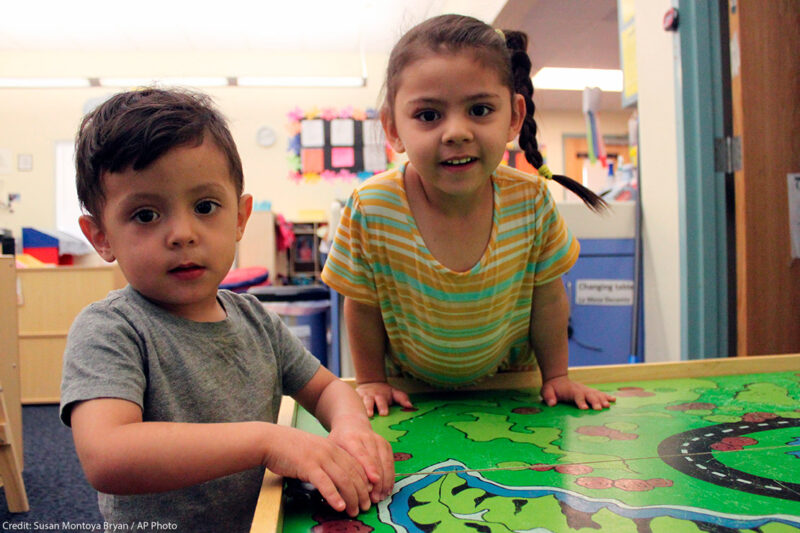Inequity Starts the Day a Child is Born


A year after the pandemic and resulting economic crisis shut down much of America, President Biden and Congress took an important step forward by passing the American Rescue Plan. The law rightly prioritizes those hit hardest by the pandemic, such as communities of color and people with low incomes, and begins to address some of the systemic inequities that COVID-19 only exacerbated — inequities that begin from the day a child is born.
The relief package includes a one-year expansion of the Child Tax Credit and an increase from $2,000 to $3,600 per child under six and $3,000 for children aged six to 17. Starting today, the first monthly installments of the tax credit will flow into eligible families’ bank accounts. This is a major sign of progress that will boost family and economic well-being for millions of children. However, child poverty is not a temporary or short-term crisis, and its impact can last generations. To effect systemic change, President Biden and Congress must do more: They must and include critical improvements so that it functions more like a child allowance and reaches all children. Doing this would cut child poverty by and instantly lift over 50 percent of Black children out of poverty.
Not only would this action change millions of children’s lives, but it has the support of a majority of voters across most demographic groups. A poll conducted by YouGov found that 58 percent of registered voters support legislation making the Child Tax Credit expansion permanent, including a significant majority of voters self-identified as liberal or moderate. A majority of voters in urban and suburban areas (69 percent and 55 percent respectively) are in support, as well as half of rural voters. Supporters of the Child Tax Credit expansion are more likely to be younger (almost three-quarters of voters aged 18-29 compared to slightly more than half of voters aged 55 and up) and lower-income (72 percent compared to 50 percent of those who make $100k - $150k and 54 percent of voters who make more than $150k). And along racial lines, an overwhelming majority (84 percent) of Black voters support the expanded Child Tax Credit compared to 61 percent of Latinx voters and 54 percent of white voters.
Child poverty is a national crisis. Every day in the United States, are born into poverty, and a majority of those children are Black and Latinx. A child’s circumstances at birth can determine outcomes for a lifetime; children growing up in poverty are more likely to live in school districts with low-quality education and, as an adult, more likely to encounter barriers to employment and become entangled with the criminal legal system. By , they are more likely to be poor than peers who never experienced poverty.
While the current Child Tax Credit system does provide some relief for its recipients, it is not permanent and does not go far enough to reach all children. We know that families need regular, consistent, and increased cash support permanently, not just for one year. Raising children and affording basic necessities to support their needs in this country is expensive and the cost continues to rise. Our families’ security, their healthy development, and their future depend on improving the Child Tax Credit so that it is permanent, reaches all children, and is easy to access.
This crisis must be treated with urgency and as a matter of racial and economic justice. Staggering as these statistics are, experience us that child poverty can be solved by government intervention. President Biden and Congress can and must respond by making the Child Tax Credit permanent with critical improvements so that Black, Latinx, Asian American and Pacific Islander, Indigenous, and immigrant children — who are too often excluded from support services — can receive the benefit. If we are truly committed to racial justice and systemic equality, the choice is clear. Systemic equality starts from the day a child is born.

